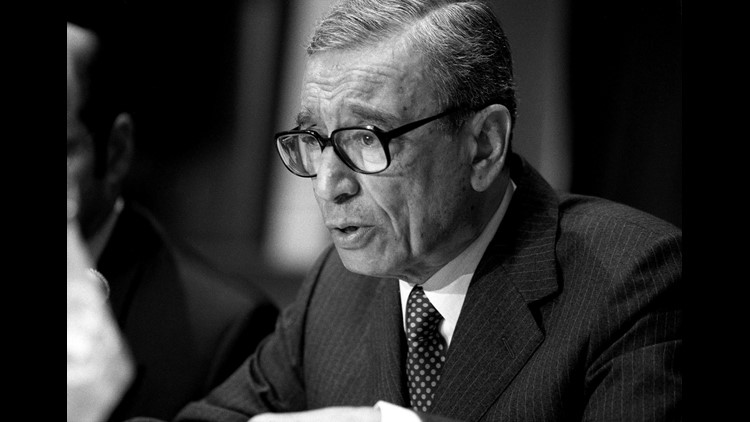Boutros Boutros-Ghali, a history-making diplomat who made his mark as an architect of the Camp David accords and then became the United Nations’ sixth secretary-general, has died.
Rafael Ramirez Carreno, Venezuela’s U.N. ambassador and current head of the U.N. Security Council, announced Boutros-Ghali’s passing Tuesday, after which representatives from the council’s 15 current members stood for a moment of silence.
Egypt’s state-run Ahram Online reported that he died Tuesday in a hospital in the Egyptian city of Giza.
Boutros-Ghali was 93.
According to his official U.N. biography, he studied international law, political science and economics at Cairo University, Paris University and New York’s Columbia University (the latter as a Fulbright Scholar). He became a well-known lawyer, scholar and professor, the latter including a 1949 to 1977 stint teaching international relations and law at Cairo University.
In the late 1970s, Boutros-Ghali shifted from talking and teaching about international relations to being part of them. As such, he held several top positions in Egypt’s Foreign Ministry.
These roles put him on the front lines of several groundbreaking moments, such as the 1978 Camp David Summit Conference that forged an Egyptian-Israeli peace treaty and set up a framework to resolve other longstanding issues in the Middle East, such as Israel’s withdrawal from the Palestinian territories of Gaza and the West Bank.
First secretary-general from Africa
His ascent, in January 1992, as the United Nations’ secretary-general was a watershed moment not just for Boutros-Ghali but for Africa, too. He was the first man from that continent to be in charge of a body that included representatives from around the world, including its most powerful nations.
This ascent meant Boutros-Ghali had a front-row seat as crises played out, like Rwanda’s genocide, war in Angola and the bloody breakup of the former Yugoslavia. He also authored “An Agenda for Peace,” a report focused on “preventive diplomacy, peacemaking and peacekeeping.”
Boutros-Ghali’s time at the top, however, didn’t last. The United States, which had criticized him for refusing to cut the United Nations’ budget and over what was then happening in Bosnia, vetoed his bid for a second five-year term, making him then and now the U.N.’s shortest-tenured secretary-general.
Thus, Boutros-Ghali gave way to another African, Kofi Annan, in the same prestigious spot.
Even after leaving office, he remained in the public spotlight thanks to his continued diplomatic work plus references in the popular American sitcom “Seinfeld” and a sit-down interview with Ali G, an alter ego of British comedian Sacha Baron Cohen.
News of Boutros-Ghali’s death stirred a wave of reactions around the world, particularly in his native Africa.
“May God comfort the family of Boutros Boutros-Ghali,” tweeted Kenyan President Uhuru Kenyatta. “His document ‘The Agenda for peace’ is a lasting legacy.”



